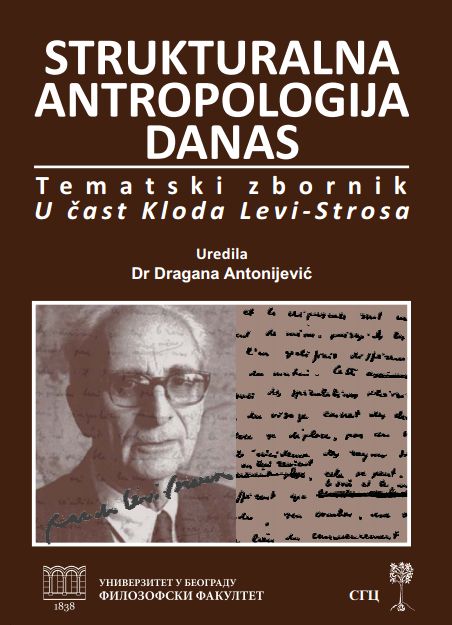Eh, da je Derida propustio taj let...
IF ONLY DERRIDA MISSED THAT FLIGHT...
About the assessment of the academic achievements of the so-called American Anthropology by Belgrade Structural-semiotic School of Folklore
Author(s): Miloš Milenković
Subject(s): Structuralism and Post-Structuralism, Cultural Anthropology / Ethnology, Culture and social structure
Published by: Srpski genealoški centar
Keywords: history of anthropology;levi-strauss;structuralism;poststructuralism;theory;postmodernity; Ivan Kovačević; Belgrade Structural-semiotic School
Summary/Abstract: Taking into account recent critiques of “underdevelop-ment”, “positivism”, “methodological backwardness” and ot-her failings attributed to so-called •American Anthropology‡ by some of the authors from the Belgrade Structural-semio-tic School of Anthropology of Folklore, I analyse the context in which colleagues and students may be tempted to explain common sense political connection between polyphone ethnography, neo-romanticism and nationalism as counter-in-tuitive history of the discipline. I already pointed that the important transformative dif-ferences in the attitudes towards structuralism between European anthropologists, especially Belgrade Structural-semiotic School of Anthropology of Folklore and so called American Anthropology, are the conseˆuence of a pure co-incidence ` the fact that French structuralism and French poststructuralism were launched simultaneously at the Ame-rican interdisciplinary intellectual scene (“Theory”) at the same conference. This ironic concurrence would not be much more than one entertaining episode for students, hi-storians of anthropology and historians of ideas, if there we-re no attempts (more and more frequent and increasingly fluently articulated) to compare different intellectual traditions as they were elements of the same unilineal evolution of the discipline. Belgrade Structural-semiotic School (further called only SS) and especially its spiritus movens and most prominent representative Prof. Kova evi started in recent years to criticise some “American Anthropology” measuring its” academic achievement” (the author's term) in comparati-ve perspective and taking as an analytical unit uncritically generalized traditions marked with a single term of “post-modern anthropology” on the one hand, and “anthropology” on the other. Belgrade SS School did develop globally original, although badly promoted and never fully used, battery for the synchronic analysis of the folklore phenomena, but this was done only after Leach, Needham, Schneider and representa-tives of ethnoscience and cognitive anthropology had al-ready adapted Levi-Strauss's ideas about mind and science to ethnographic phenomenology. Transformation of Levi-Strauss's analysis and limited success of its adaptation to the analysis of phenomena that usually concern anthropo-logy happened simultaneously with the development of the critique of structuralism as a theory of culture in the Ameri-can academic scene. This proves a theory that there is at le-ast one “Atlantic split”, analogue to that in philosophy, morethan it makes a relevant context for measuring of the com-parative “academic achievements” of the specific and uncon-nected disciplinary traditions.
Indirectly, this paper explains that Levi-Strauss's work has contradictory functions in the history of ideas in anthropo-logy, serving as a starting point for •postmodern” neo-romantic and positivistic critique of imperial realism (in USA), as well as •enlightened”, realistic and anti-tribal critique of ethnology as positivistic, nationalistic and national science (in Serbia). In this paper, special emphasis is placed on the local context in which structuralism as a founding discourse of anthropology is opposed to ethnology as national prose. As such it had completely different role in comparison to struc-turalism in a) the history of American anthropology and b) in the history of interdisciplinary/postmodern Theory.
Book: Strukturalna antropologija danas
- Page Range: 32-56
- Page Count: 25
- Publication Year: 2009
- Language: Serbian
- Content File-PDF

